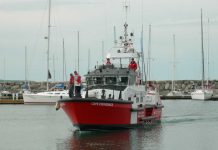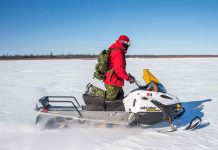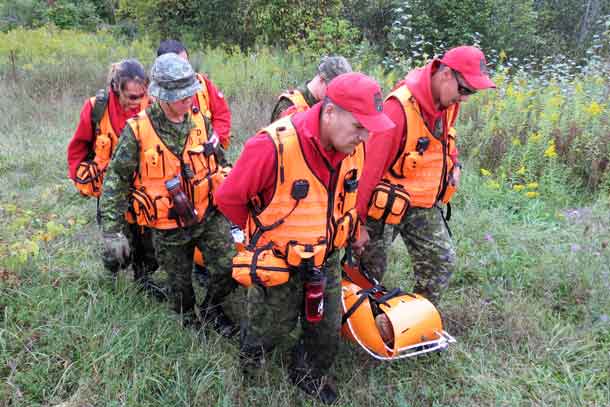
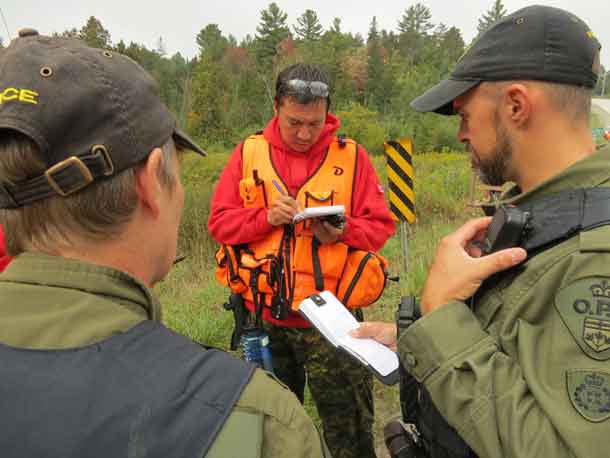
By Peter Moon
CFB BORDEN – A group of Canadian Rangers from Northern Ontario has completed 10-days of challenging search and rescue training with the Ontario Provincial Police.
“It’s been hard,” said Master Corporal Shaun Kakegamic of Muskrat Dam, a small, fly-in Oji-Cree community, 580 kilometers north of Thunder Bay. ‘It’s been long hours, a lot of walking, waking up early, going to bed late, doing searches. They keep you going all the time and you are tired. It’s been hard work.
“But it’s a good course. I’ve learned a lot from it. We’ve all learned a lot and what we’ve learned we’ll take home with us.”
The Rangers, who are part-time army reservists, took the training at Canadian Forces Base Borden, near Barrie.
“The training they take is an advanced search and rescue course,” said Sergeant John Meaker, the OPP’s provincial search and rescue co-ordinator. “It’s the same course that OPP members get.”
The Rangers in Northern Ontario, he said, have a unique relationship with the OPP. They are the only Rangers in Canada who receive police training in search and rescue and have a formal agreement to do search and rescue on behalf of the police. The OPP are the lead agency for search and rescue in Ontario, a role assumed by the Quebec provincial police in Quebec, and the RCMP in the rest of Canada.
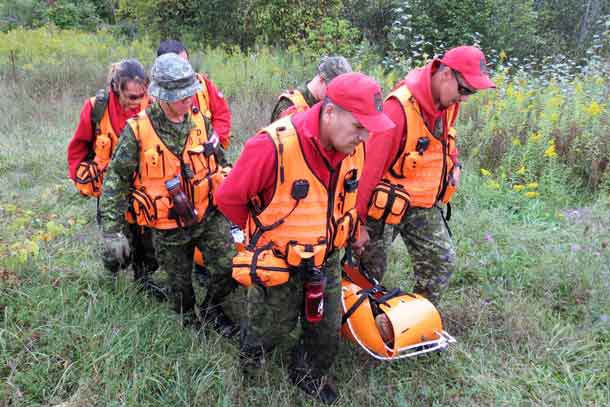
While the OPP has prime responsibility for search and rescue in Ontario, assembling a trained OPP search and rescue team and getting a plane to fly them into a remote First Nation may take up to eight hours or longer, depending on the weather. By then the Rangers have usually found the missing person or persons. Last year, the Rangers saved 32 lives in 26 successful search and rescue operations in Northern Ontario.
“The Canadian Rangers are of great value because they live in the remote North, where the OPP does not have easy access for search and rescue. They are an invaluable tool for us,” Sergeant Meaker said.
“The OPP uses the Rangers’ traditional knowledge, especially of the terrain and of the behaviour of the people in their community. They know their people better than we know them. They know people, for instance, who have trap lines and if they get hurt they know where they would be likely to go and that sort of thing.
“With this training, we’re giving them the tools to do their job more effectively. We learn a lot from them about how they find people up there. As much as we’re teaching them they’re teaching us.”
The OPP training gave the Rangers more than 100 hours of classroom instruction and field training exercises that often did not finish until midnight.
“The course is intensive for a good reason,” said Warrant Officer Daniel Storz, a Canadian Army instructor. “The reality is a search is not a 9 to 4 operation. It could be all night or for multiple nights. The training puts a lot of stress on the body and the mind. If the Rangers can operate in stressful conditions during the training it helps prepare them for real searches which can happen at any time of the day or night.”
The training, he said, helps the Rangers bring organization to the knowledge they already possess as skilled operators on the land.
Most of the Ranger patrols in the 24 First Nation communities across the Far North of Ontario with Canadian Rangers in them have at least one OPP-qualified search and rescue specialist, he said.
(Sergeant Peter Moon is the public affairs ranger for the 3rd Canadian Ranger Patrol Group at Canadian Forces Base Borden.)


